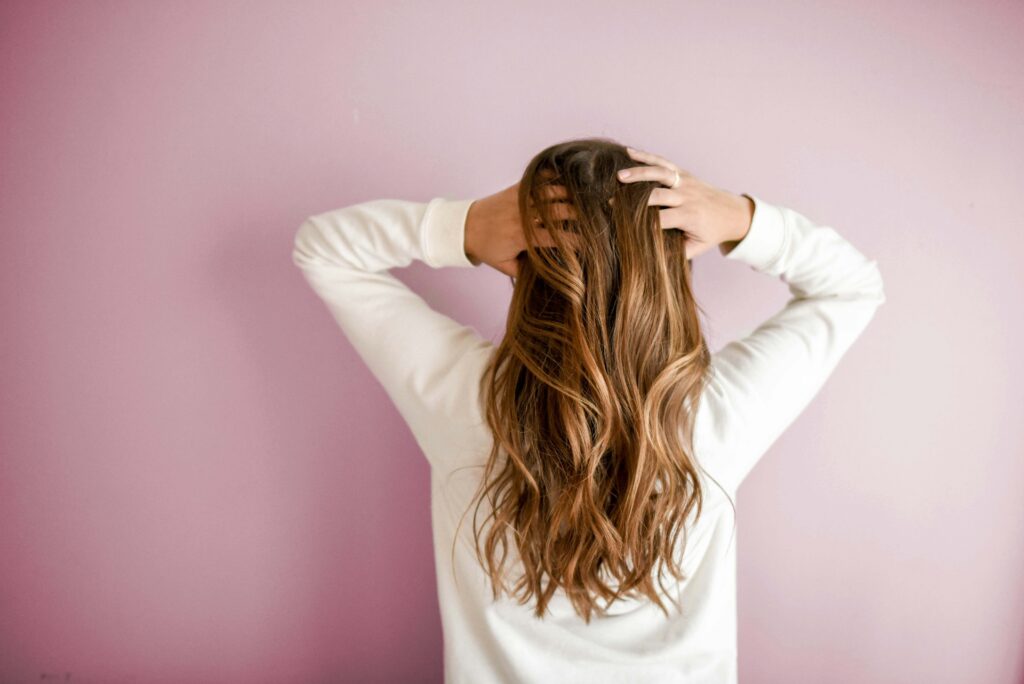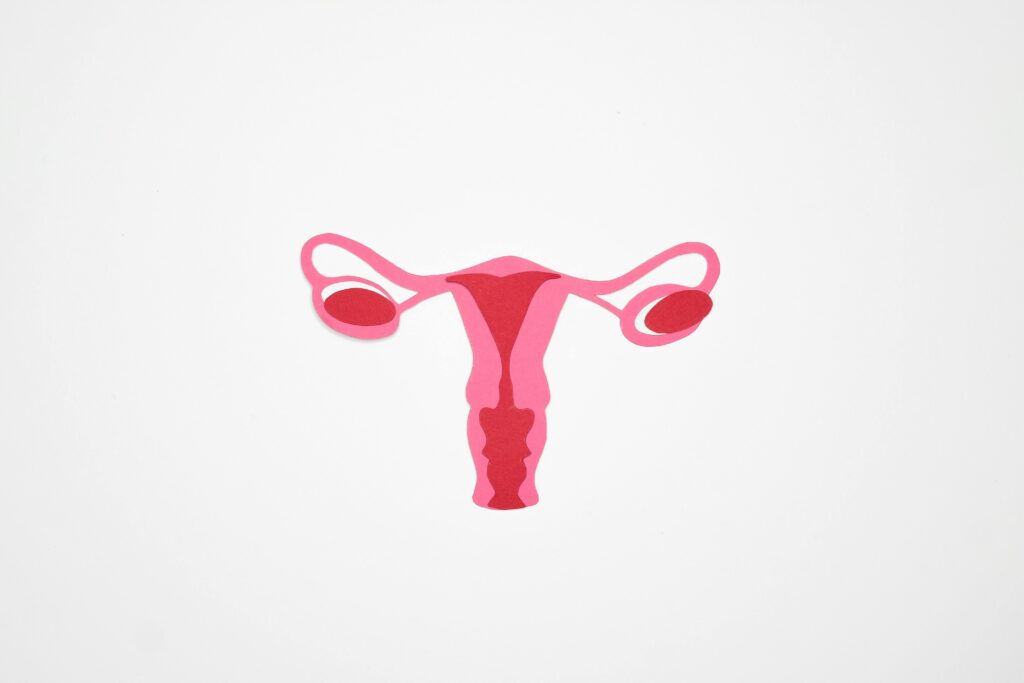Hair Not Growing? What Your Body Might Be Missing
Why is Hair Growth Important?
Hair growth is not just a cosmetic concern but an indicator of overall health. Whether you’re experiencing slow growth, thinning hair, or hair loss, it’s essential to understand the factors that contribute to healthy hair. Hair growth is influenced by genetics, diet, and lifestyle habits, but when hair growth slows down, it could be a sign that your body is missing vital nutrients.
In this article, we’ll explore the most common reasons for slow hair growth and highlight the key nutrients your body might be missing. With the right care and nutrition, you can help promote healthy, strong hair.

Common Causes of Slow Hair Growth
Nutrient Deficiencies
One of the most common reasons for slow or stagnant hair growth is nutrient deficiencies. If your body isn’t getting the right vitamins and minerals, it can result in weak, brittle hair that grows slowly or not at all. Hair is made of keratin, a protein that requires certain nutrients for optimal growth.
Key Nutrients Your Hair Needs
Hair requires biotin, vitamin D, zinc, iron, and other vitamins to grow strong. Without these, hair growth can slow, and hair can become brittle or thin.
Poor Digestion and Gut Health
Your digestive system plays a major role in how well your body absorbs nutrients. If your gut health is compromised, your body may struggle to absorb essential vitamins and minerals, leading to deficiencies that affect hair growth. Poor digestion caused by issues like gut dysbiosis or irritable bowel syndrome (IBS) can prevent your hair from receiving the nourishment it needs.
Supporting your gut health is crucial for improving nutrient absorption, which can promote healthier hair. Bioma’s gummies designed to improve gut health, can restore balance in the digestive system, leading to better nutrient absorption and healthier hair growth.
Stress and Hormonal Imbalances
Chronic stress can disrupt the hair growth cycle. It leads to the production of cortisol, a hormone that can push hair follicles into a dormant state, slowing growth. Stress-induced hair loss, known as telogen effluvium, causes hair to shed more rapidly.
Hormonal imbalances, whether from thyroid issues, PCOS, or menopause, can also slow hair growth. When hormones fluctuate, the hair growth cycle is disrupted, leading to thinning hair or slower growth.
Key Nutrients for Healthy Hair Growth
Biotin (Vitamin B7)
Biotin is essential for the production of keratin, the protein that makes up hair. Without enough biotin, hair may become weak, brittle, and prone to breaking. Biotin is commonly recommended for promoting hair growth and improving hair strength.
In addition to biotin, make sure your body is getting enough of the other vitamins and minerals necessary for hair growth, including vitamin D, iron, and zinc.

Iron and Zinc
Iron is vital for hair growth because it helps oxygenate hair follicles. Low iron levels can lead to hair loss and slower growth. Zinc plays a role in cell division and protein synthesis, which is critical for hair follicle function. Without enough zinc, hair growth may be stunted.
Iron is especially important for those with heavy periods or vegetarians, while zinc deficiency is common in people with poor diets or gut health issues.
Vitamin D
Vitamin D is crucial for maintaining healthy hair follicles. Studies have shown that a lack of vitamin D can contribute to hair thinning and even conditions like alopecia. It helps regulate the growth cycle of hair follicles, making it an essential nutrient for hair health.
Most people don’t get enough vitamin D from food alone, so it’s important to get some sun exposure and consider taking a supplement if you’re deficient.
Vitamin E
Vitamin E is an antioxidant that helps protect hair follicles from oxidative damage. It also improves blood circulation to the scalp, which enhances the health of the hair follicles. Vitamin E helps maintain the moisture balance of your hair, reducing dryness and breakage.

How to Support Hair Growth Naturally
1. Eat Hair-Boosting Foods
The right foods can make a significant difference in your hair health. A diet rich in biotin, vitamin D, zinc, and iron is essential for supporting healthy hair growth. For example:
- Eggs: Rich in biotin and protein, perfect for healthy hair.
- Leafy greens: High in iron and vitamin A, crucial for hair health.
- Salmon: Full of omega-3 fatty acids and vitamin D.
- Nuts and seeds: Packed with zinc and vitamin E to nourish the scalp.
2. Consider Supplements for Hair Health
If you’re not getting enough essential nutrients from food alone, Bioma’s Collagen Gummies for Hair, Skin, and Nails offer an easy and effective way to support your hair health. These gummies are formulated with collagen, biotin, and other vital nutrients that promote stronger, healthier hair from within.
Collagen plays a key role in maintaining the strength and elasticity of hair strands, while biotin supports keratin production—an essential protein for hair growth. By also promoting gut health and nutrient absorption, these gummies help ensure your body can efficiently utilize the vitamins and minerals needed for optimal hair health.

3. Manage Stress and Hormonal Imbalances
Stress can significantly affect hair growth. Reducing stress through practices like meditation, exercise, or deep breathing can improve hair health. Managing hormonal imbalances by consulting a doctor and taking the appropriate treatments is also key to promoting hair growth.
Customer Review
“I had been frustrated for months because my hair just wouldn’t grow past a certain length. After reading this article, I realized I was probably missing some key nutrients. I started taking Bioma’s Collagen Gummies for Hair, Skin, and Nails, and the difference has been incredible. Within a few weeks, my hair felt stronger and looked healthier, and now it’s finally growing again. This has been a total game changer for me!”
— Samantha L., Verified Buyer
When to Seek Professional Help
If your hair continues to grow slowly or thin despite making dietary and lifestyle changes, it may be time to consult a doctor. Some underlying health conditions may contribute to hair loss or slow growth, including:
- Thyroid issues
- Hormonal disorders (e.g., PCOS, menopause)
- Iron deficiency or other nutrient deficiencies
A healthcare provider can perform tests to determine the cause and recommend the appropriate treatment.
Can diet really affect hair growth?
Yes, diet plays a significant role in hair growth. Nutrient deficiencies, particularly in vitamins like biotin, iron, zinc, and vitamin D, can lead to slower hair growth, thinning, and hair loss. Ensuring your body gets the right nutrients is crucial for optimal hair health and promoting faster, stronger growth.
How long does it take to see results from improving my diet and nutrient intake for hair growth?
It generally takes 8-12 weeks to notice visible improvements in hair growth. Hair growth occurs in cycles, and it can take time for changes to show. Consistency with a healthy diet, proper supplements, and a good hair care routine will contribute to healthier, stronger hair over time.
Are Bioma’s Collagen Gummies really helpful for hair growth?
Yes, Bioma’s Collagen Gummies for Hair, Skin, and Nails are specifically designed to support hair growth and overall hair health. These gummies contain collagen and biotin, two key nutrients that strengthen hair and promote growth by supporting keratin production. Additionally, the inclusion of prebiotics and postbiotics helps improve gut health, which enhances your body’s ability to absorb essential nutrients—ensuring your hair gets what it needs to grow stronger and healthier from the inside out.
Which nutrients are most important for healthy hair growth?
The key nutrients that support hair growth include biotin, iron, zinc, vitamin D, and protein. Biotin is essential for keratin production, which strengthens hair. Iron and zinc help improve circulation to the scalp, while vitamin D supports the hair follicle growth cycle. Adequate protein intake is also crucial, as hair is made primarily of keratin, a protein.
Can stress affect hair growth?
Yes, stress can negatively affect hair growth. Prolonged stress triggers an increase in cortisol levels, which can disrupt the hair growth cycle and cause hair to enter the shedding phase prematurely. Reducing stress through relaxation techniques, exercise, and proper sleep can help improve hair growth and overall health.
How can I improve circulation to my scalp to boost hair growth?
Improving circulation to your scalp can help deliver essential nutrients to the hair follicles. Regular scalp massages can stimulate blood flow, promoting healthy hair growth. Additionally, incorporating omega-3 fatty acids into your diet can improve circulation, providing the scalp with nutrients needed for hair strength and growth.
Related articles






